This Week At Angama #56
1 March 2019 | This Week at Angama | Tyler Davis
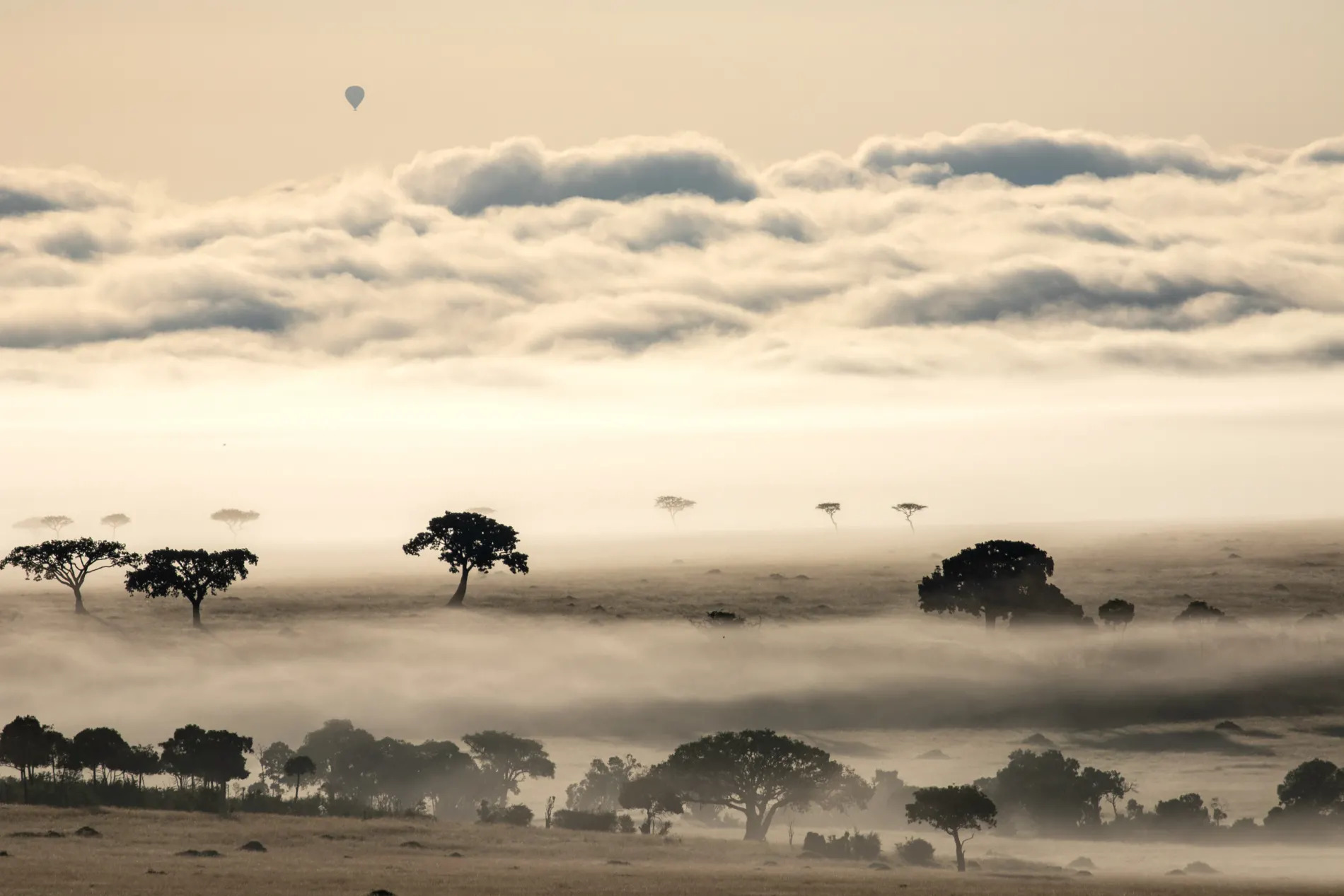
The weather continues to be hotter than we’re used to, but a few times this past week we’ve had powerful evening storms that cool things down. One storm registered 33mm of rain, while another clocked windspeeds of 72kph – fantastic spectacles of weather to watch from a cozy perch atop the escarpment. The early starts this time of year pay off, as these evening storms and warmer weather are exactly what’s needed to create the picturesque misty mornings seen in the image above, and in a few of the photographs below. It’s a special experience to beat the sun into the Mara Triangle, watching it turn silvery mists hanging amongst the Balanites into an enveloping orange glow, before eventually burning off in time for the golden hour. If only every morning could be so perfect.
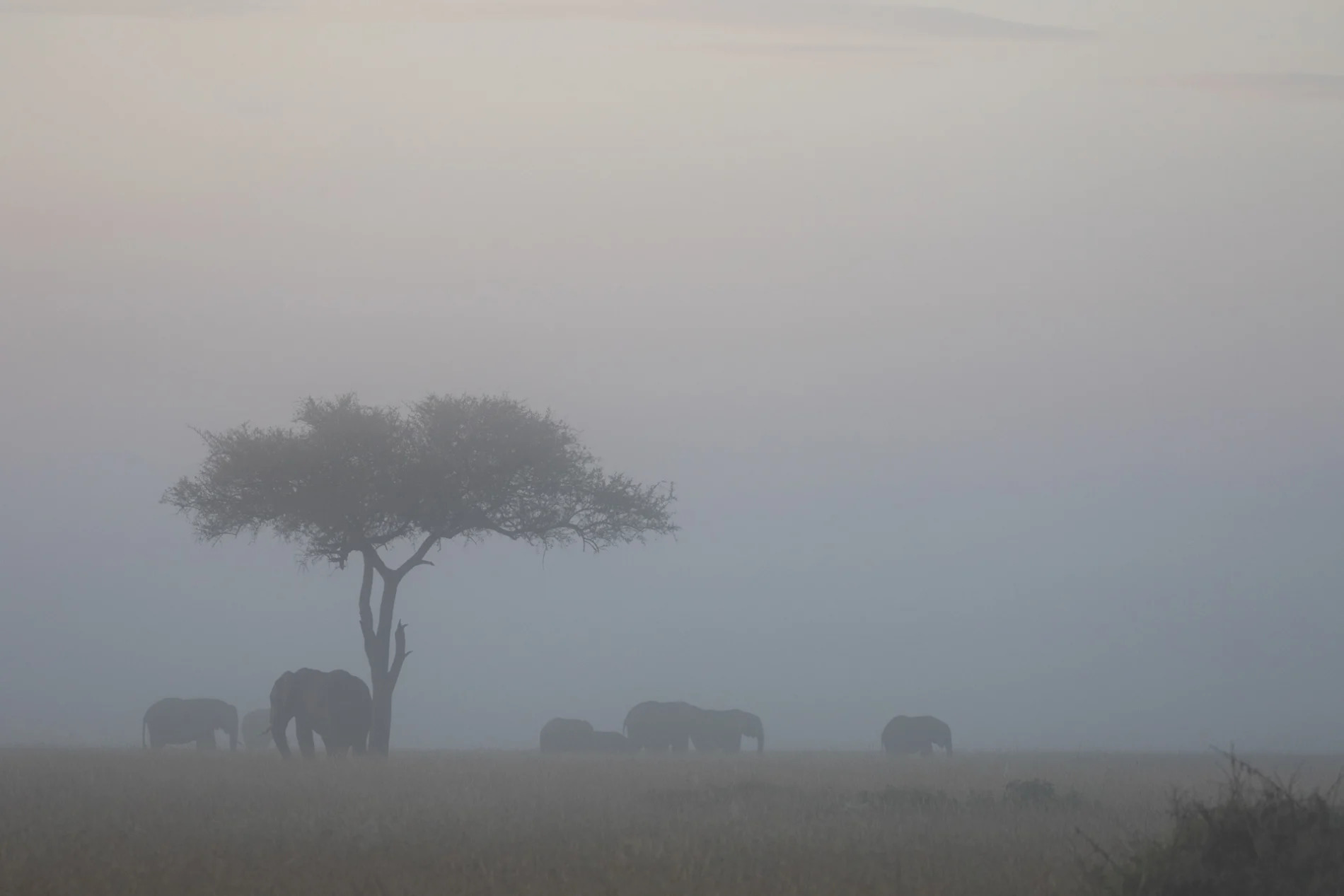 Photograph by Tyler Davis
Photograph by Tyler Davis
I almost found the image I was looking for in last week’s This Week at Angama, but still not quite what I had in mind. Nevertheless, I enjoy the serenity of this image. [f 5.0, 1/320, ISO 250]
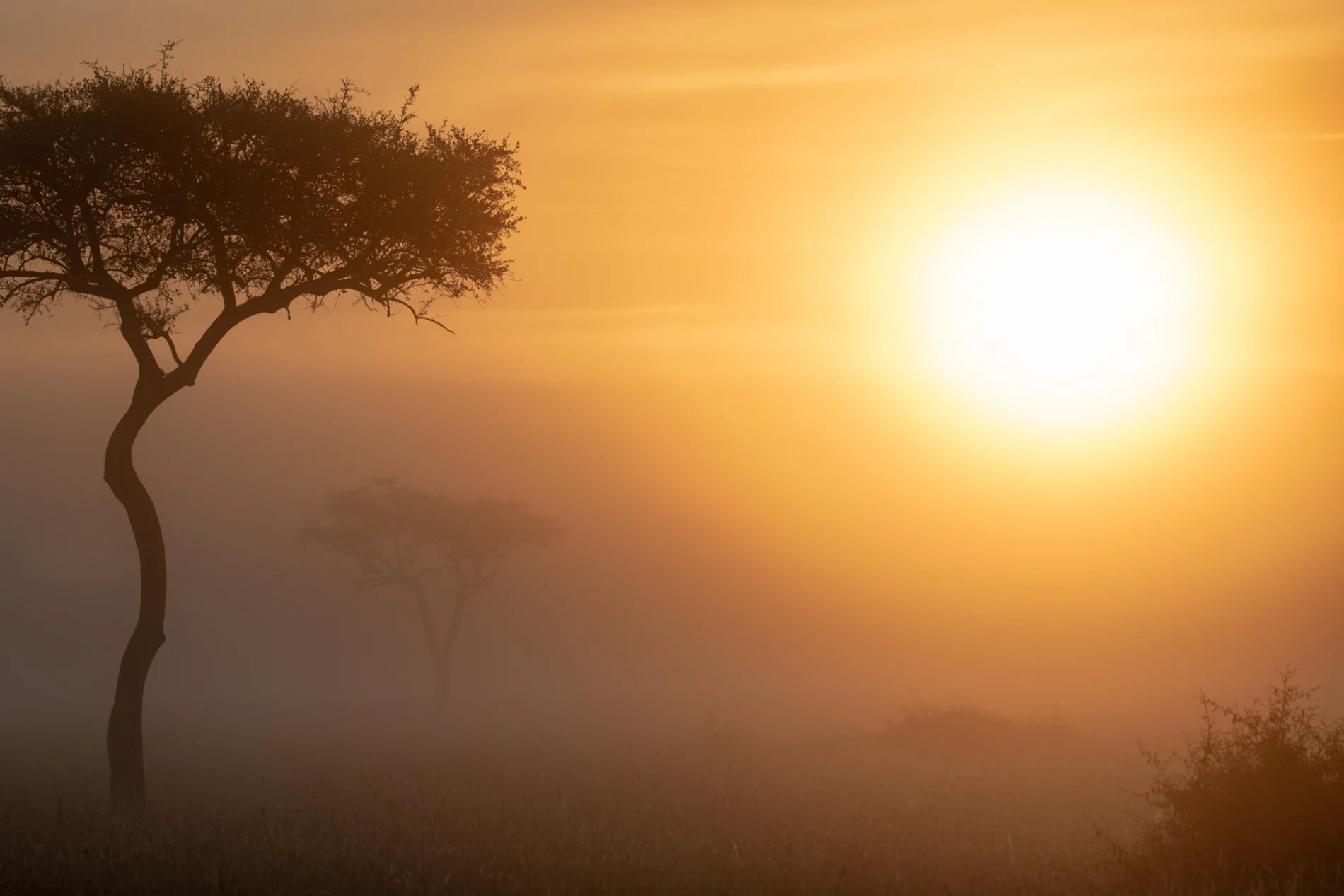 Photograph by Tyler Davis
Photograph by Tyler Davis
This is actually an image known as an “HDR” or High Dynamic Range – several photos merged together to capture greater and more equal detail from both light and dark areas of the scene. This is what allowed me to capture the sun amongst the misty trees without completely blowing out the image or having the foreground too dark. [5 photos merged, all f/5.0 & ISO 250, and shutter speeds of 1/8000, 1/4000, 1/2000, 1/1000, 1/500]
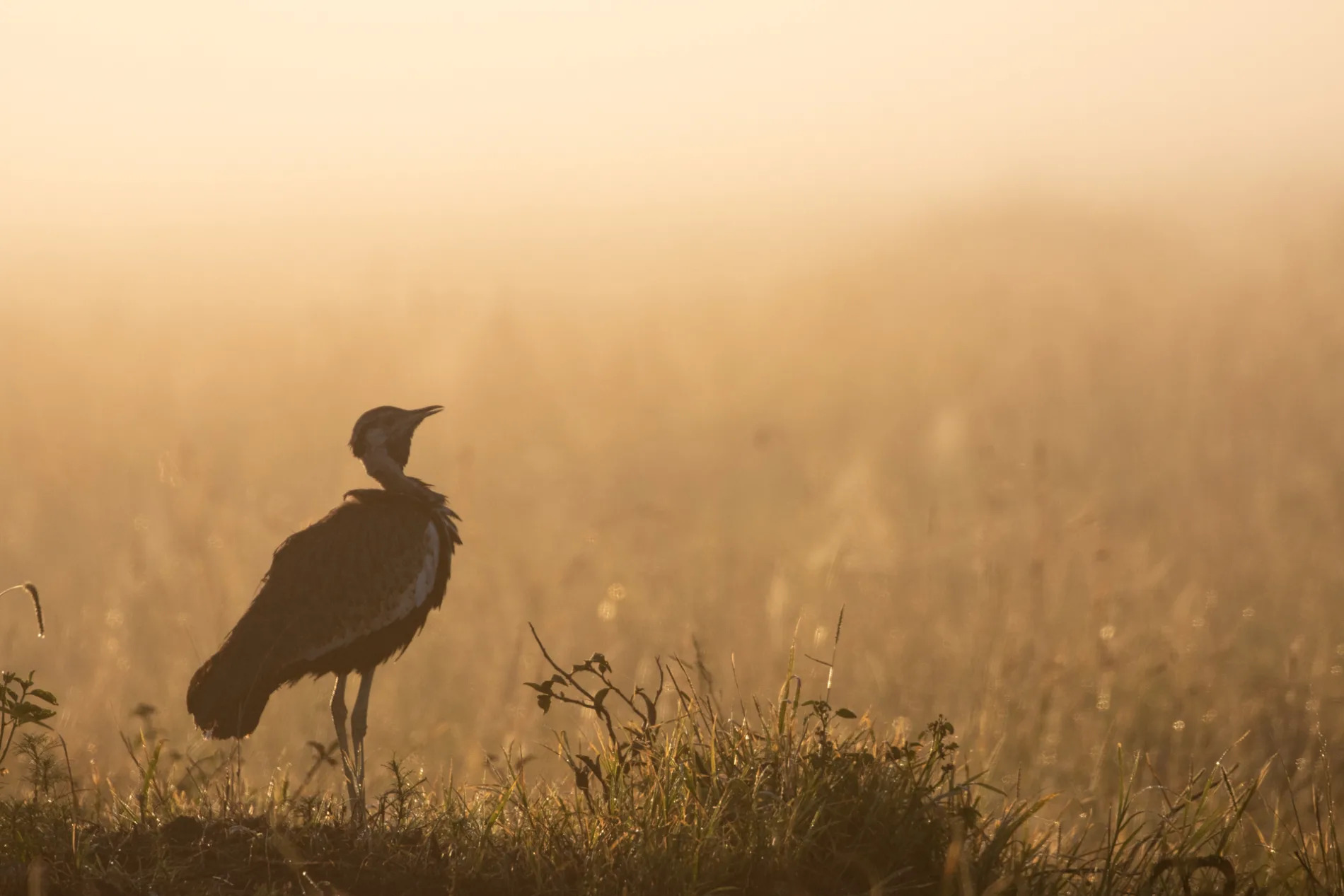 Photograph by Tyler Davis
Photograph by Tyler Davis
This displaying male black-bellied bustard made for a beautiful subject to orient as a silhouette in the golden morning light. [f/5.6, 1/1250, ISO 250]
 Photograph by Tyler Davis
Photograph by Tyler Davis
A stitched panoramic to show more of the dramatic sunrise captured in the first image above. [6 photos merged, all f/5.0 & ISO 400, shutter speeds ranging 1/8000 to 1/5000]
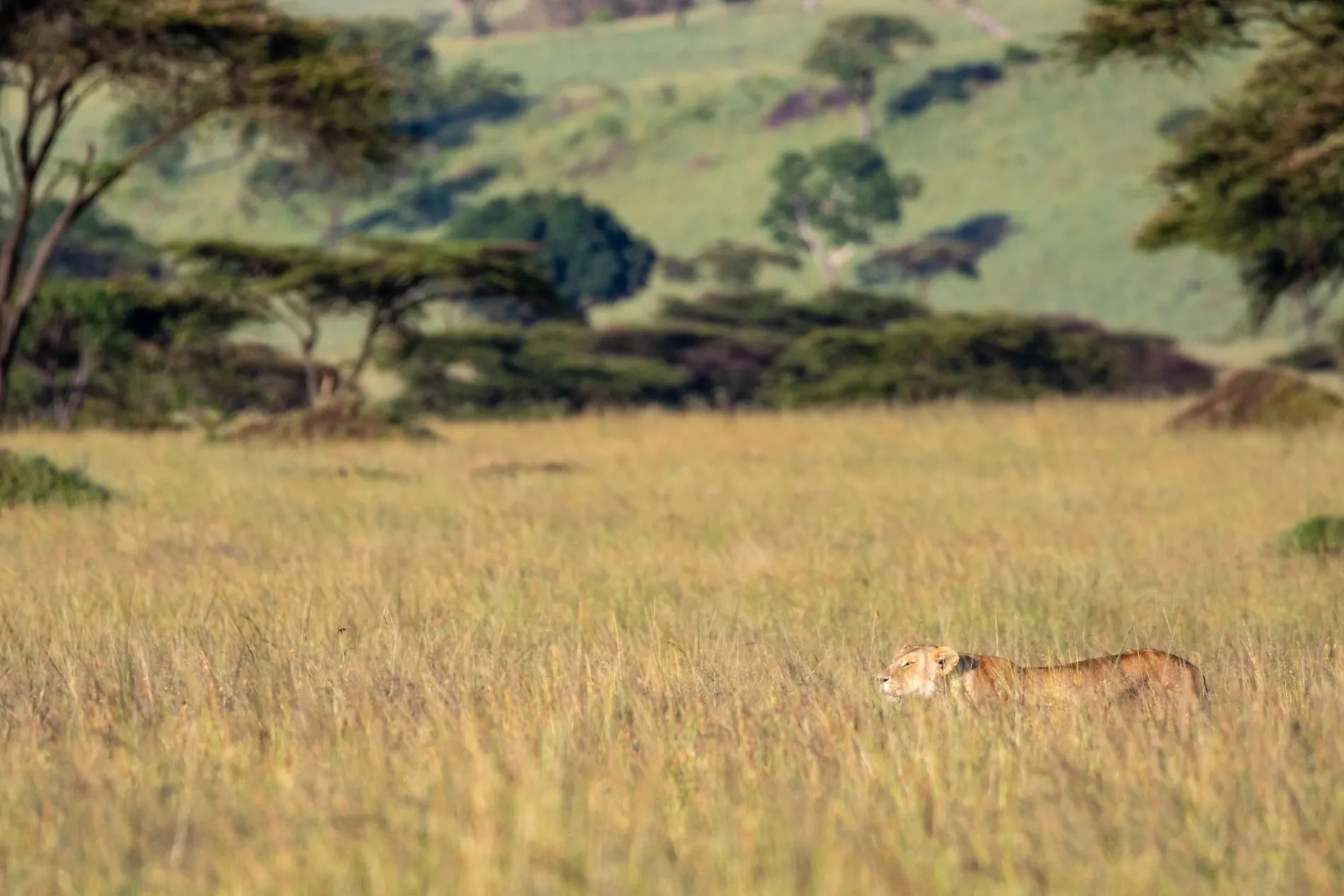 Photograph by Tyler Davis
Photograph by Tyler Davis
A lioness prowling in the tall golden grass in the early morning light made for a beautiful scene. Instead of zooming in tightly, I chose to stay on the wider side and compose her with her surroundings to create more of a sense of place. I spent a fantastic morning following this lioness and her pride, including three cubs. [f 5.6, 1/1000, ISO 250]
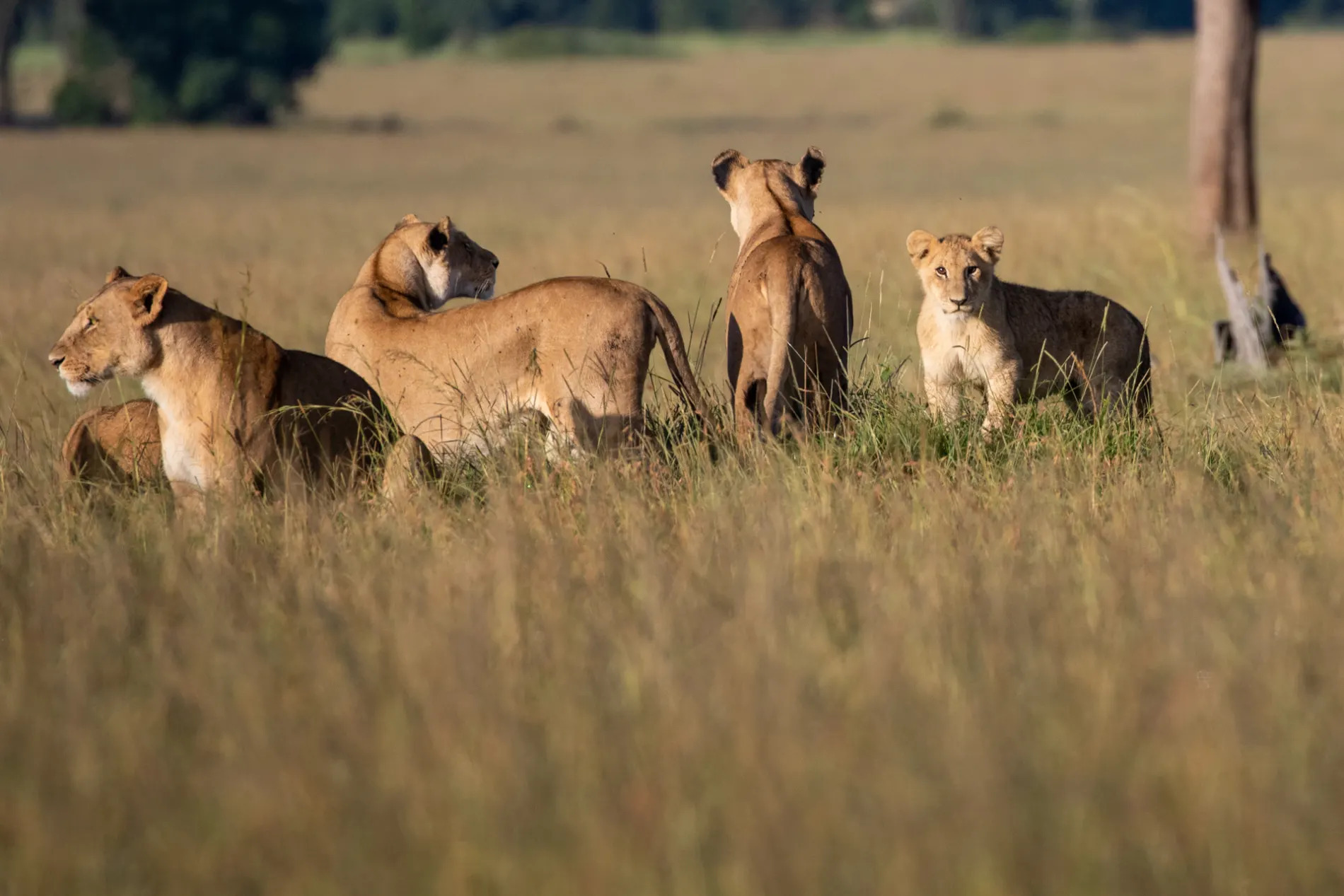 Photograph by Tyler Davis
Photograph by Tyler Davis
As the adult females of the pride were scanning their surrounds for a potential meal, the young cub was more interested in me. [f/5.6, 1/1600, ISO 400]
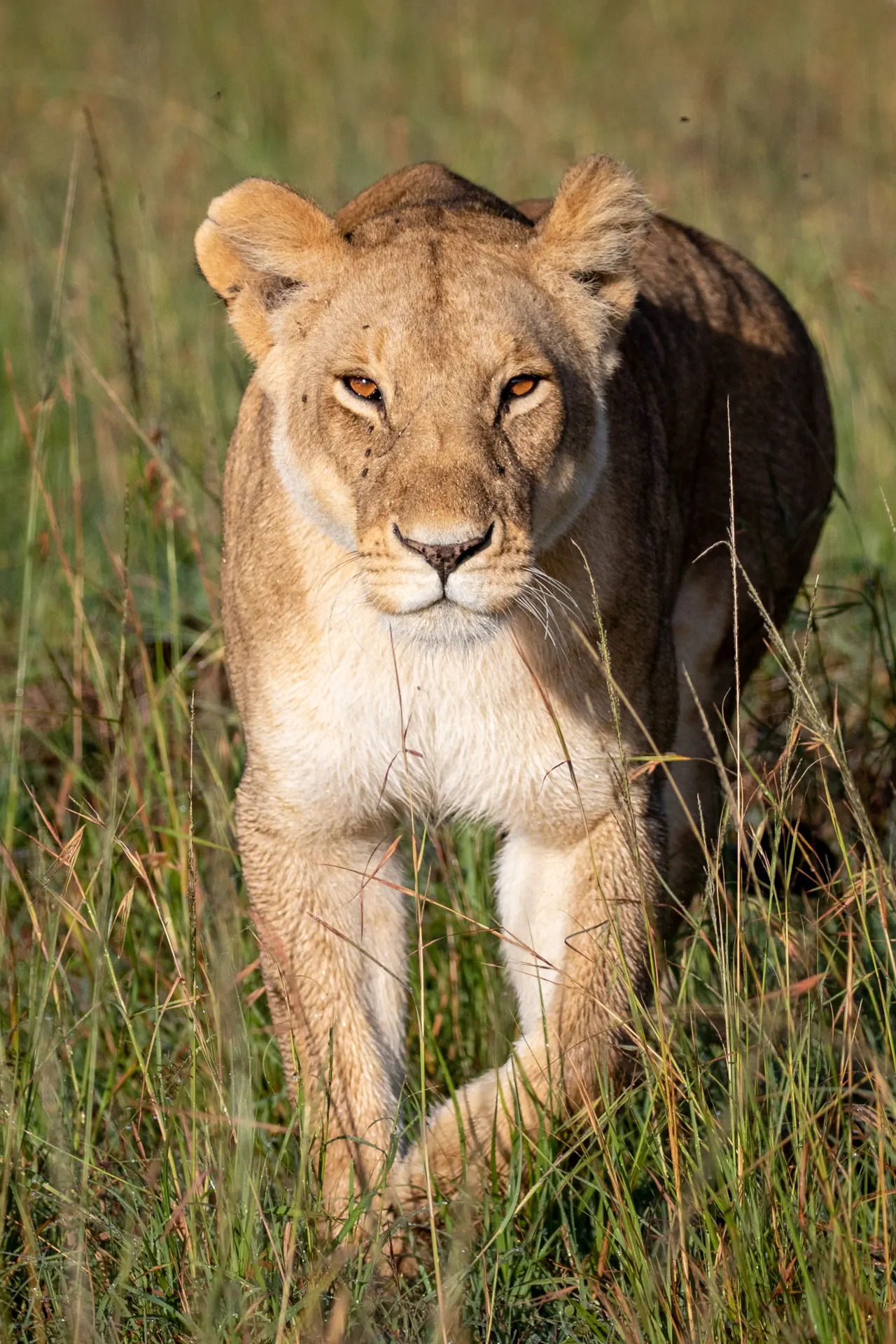 Photograph by Tyler Davis
Photograph by Tyler Davis
I parked and sat silently for several minutes as I watched the pride wend their way through the damp grass, and hoped that at some point they’d face me. Sure enough, for a brief moment, one of the females did. [f/5.0, 1/3200, ISO 400]
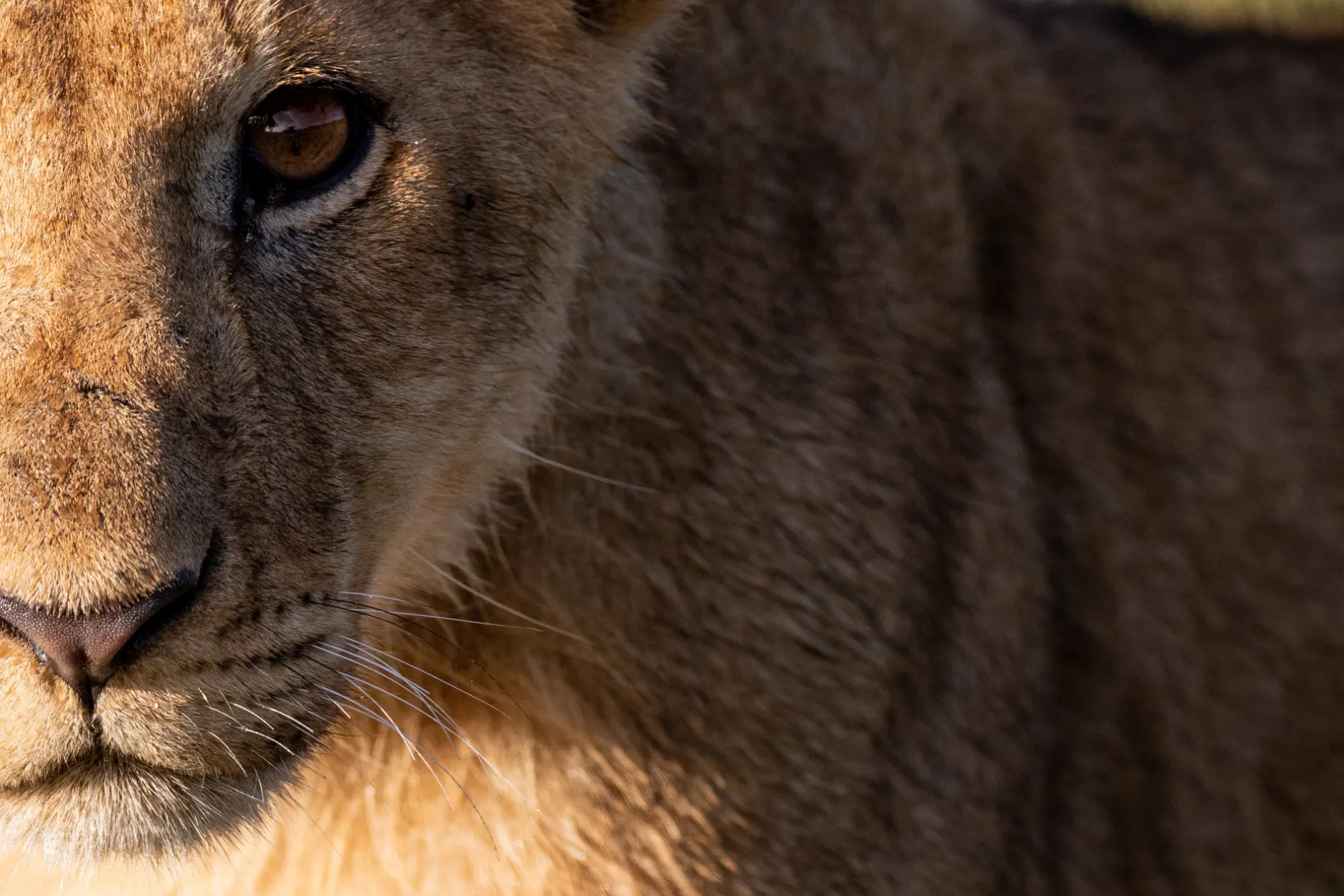 Photograph by Tyler Davis
Photograph by Tyler Davis
Lion cubs are so photogenic. I got a bit excited as one wandered close and I made the common error of being too zoomed in. Some photographs had the ears cut off, others had the muzzle clipped. But the images were nice and crisp; so not wanting to waste them, I got a bit creative with cropping in post-processing. I like how this one turned out. [f/5.0 1/1000 ISO 400]
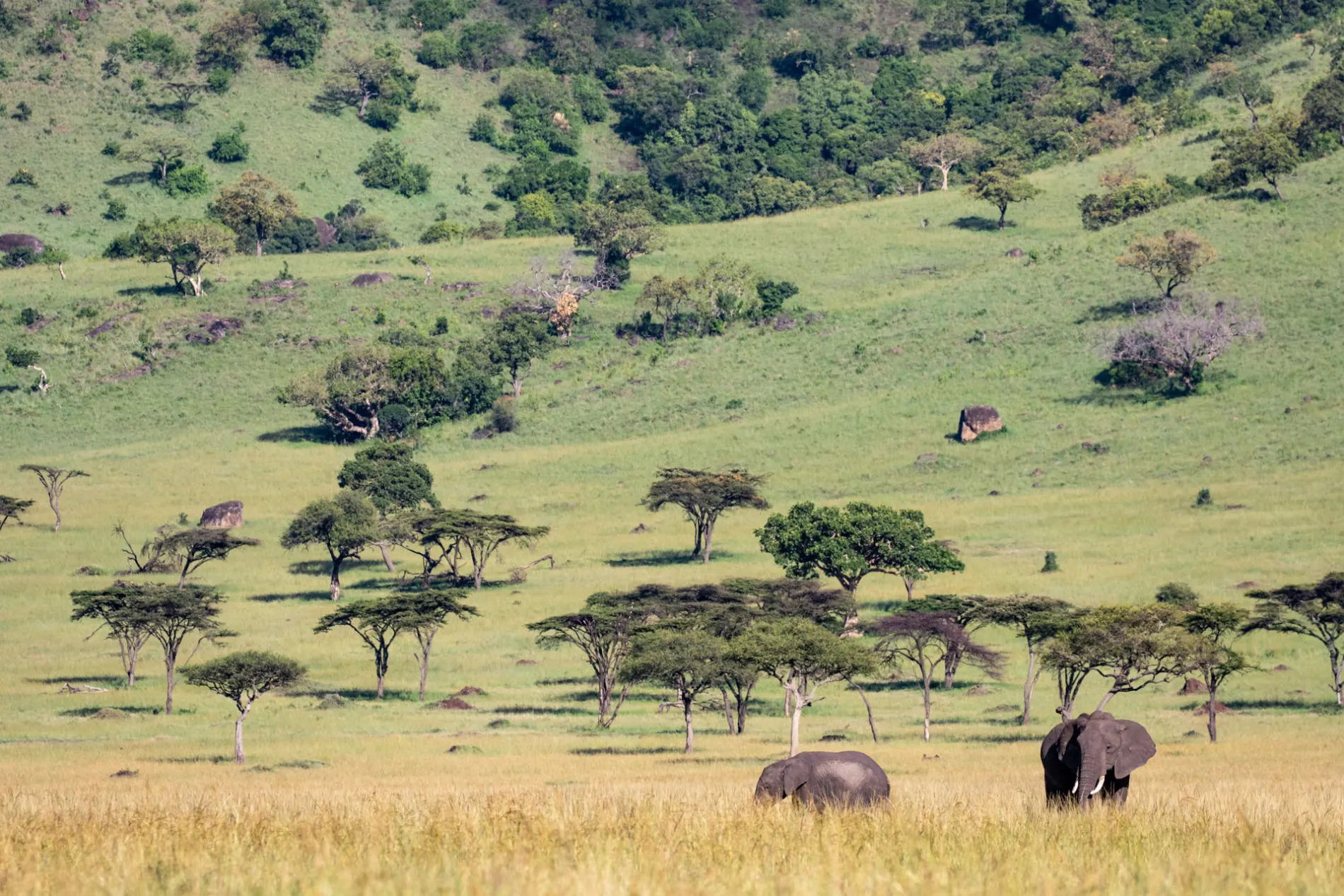 Photograph by Tyler Davis
Photograph by Tyler Davis
If I hadn’t been preoccupied with lions, I would have spent more time trying to get a really special photograph here. This was a quick snap as I was repositioning to follow the lions on the move – but what I like about it is the usage of the sloping parklike escarpment as a backdrop. [f 5.0, 1/3200, ISO 400]
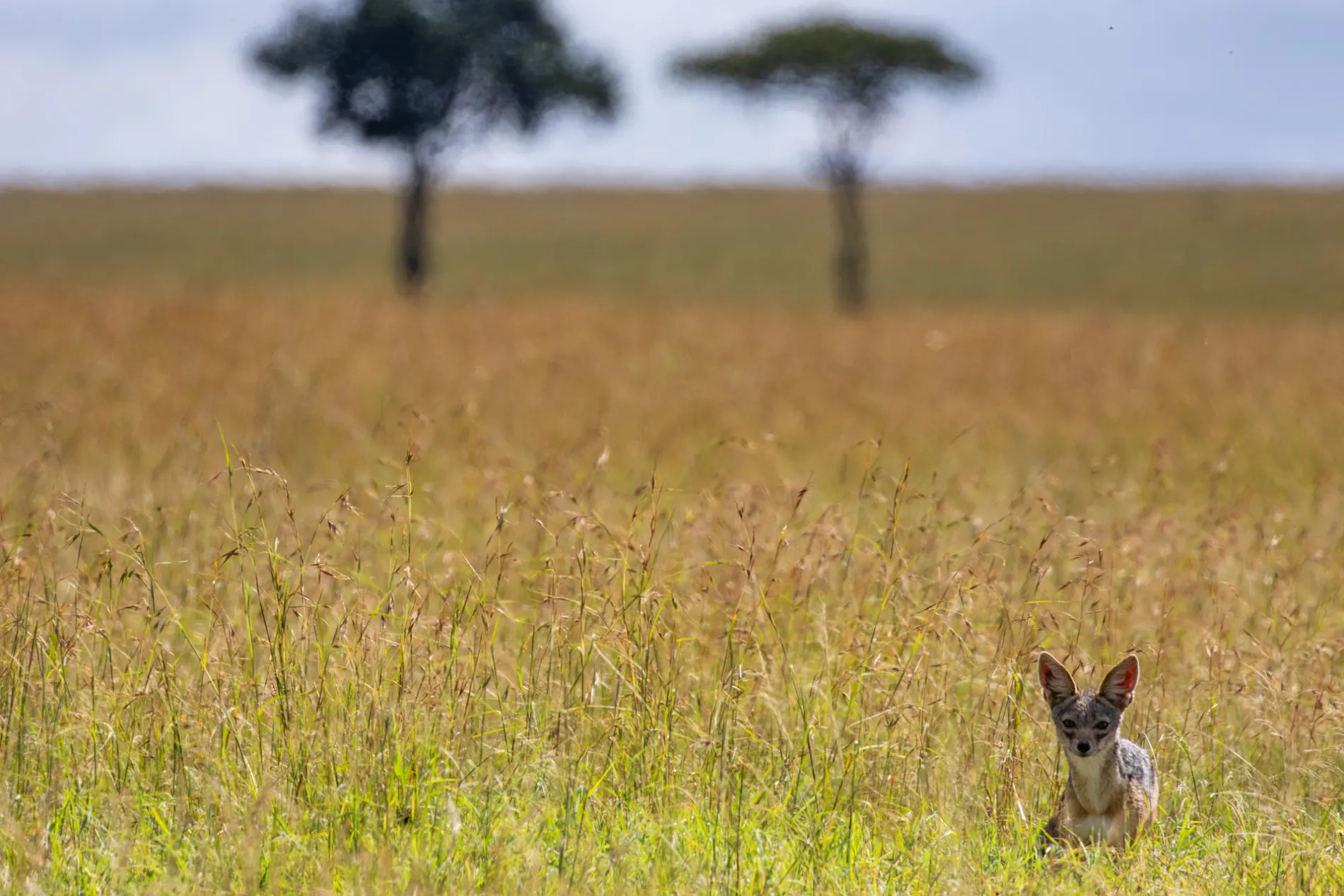 Photograph by Tyler Davis
Photograph by Tyler Davis
I came across a pair of jackals foraging in the long grass, sticking their snouts in holes and pouncing on prey. One stopped to look at me briefly, and I liked the simplicity created by the lone jackal framed in the bottom corner of the photograph, with the open expanse behind it. [f/5.6, 1/1250, ISO 200]
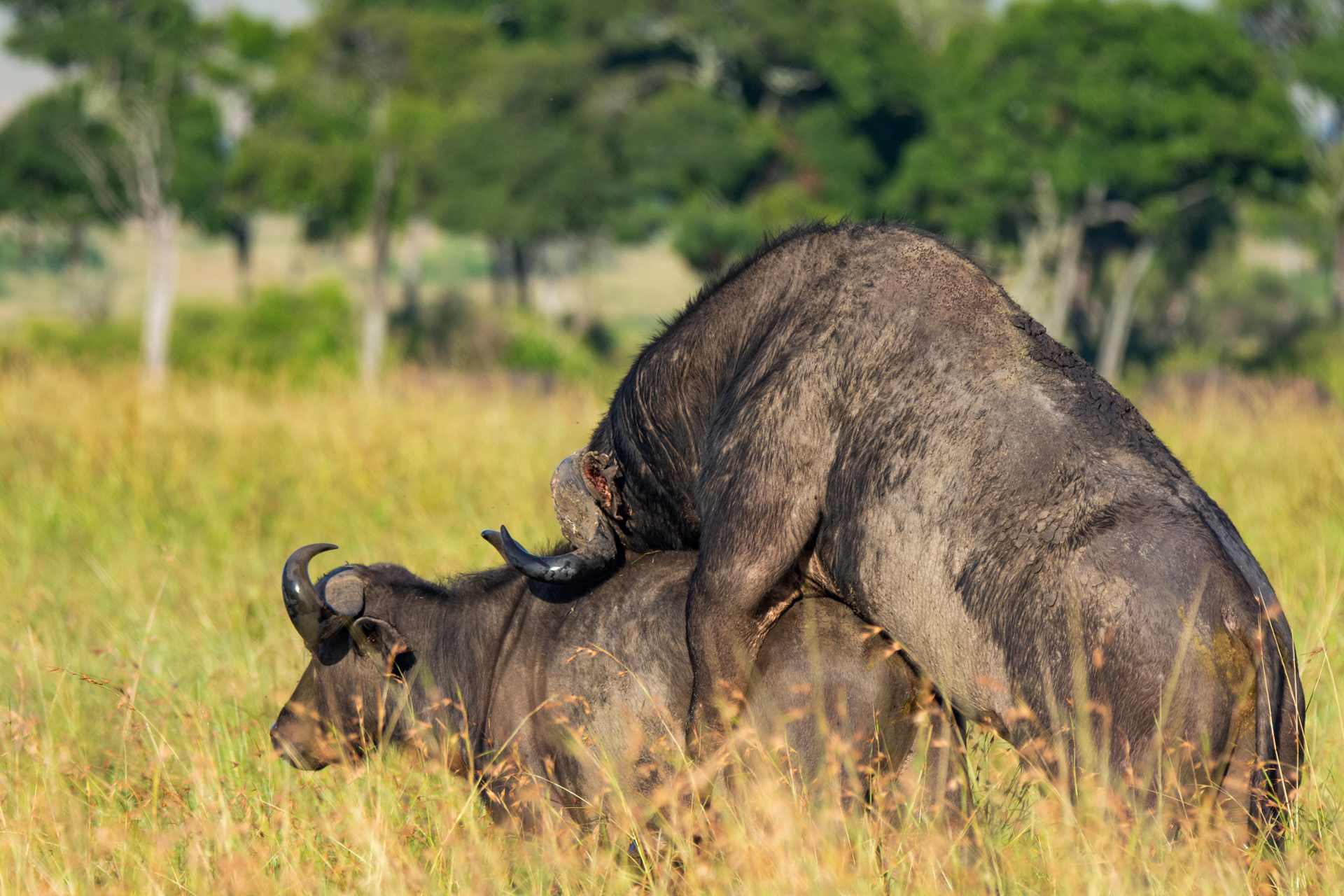 Photograph by Jeff Thige
Photograph by Jeff Thige
Ever wondered how those big bovines make smaller bovines? Wonder no more – Jeff caught them in the act this week. Good to know those big breeding herds of the Mara will continue to flourish. [f/5.6, 1/800, ISO 320]
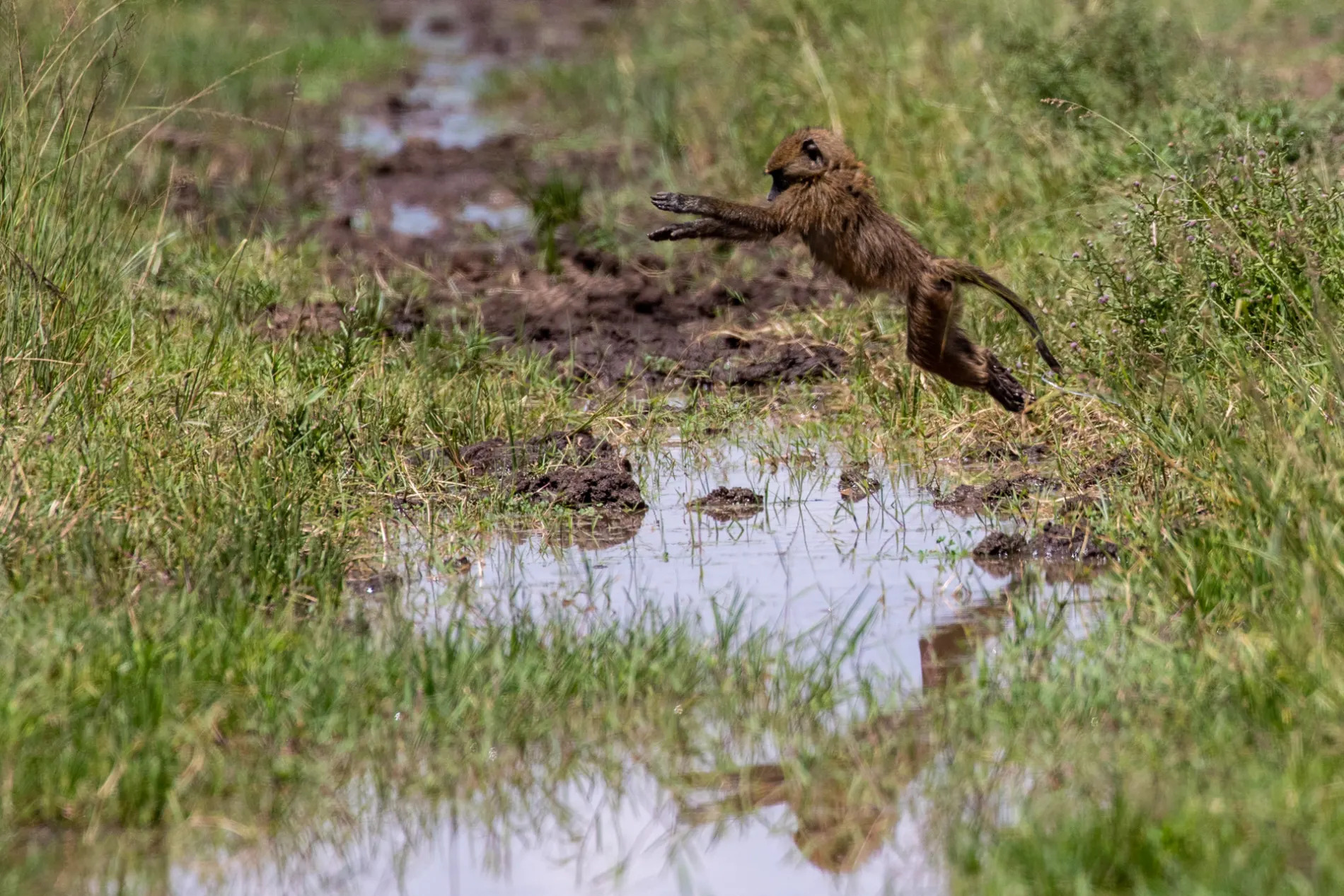
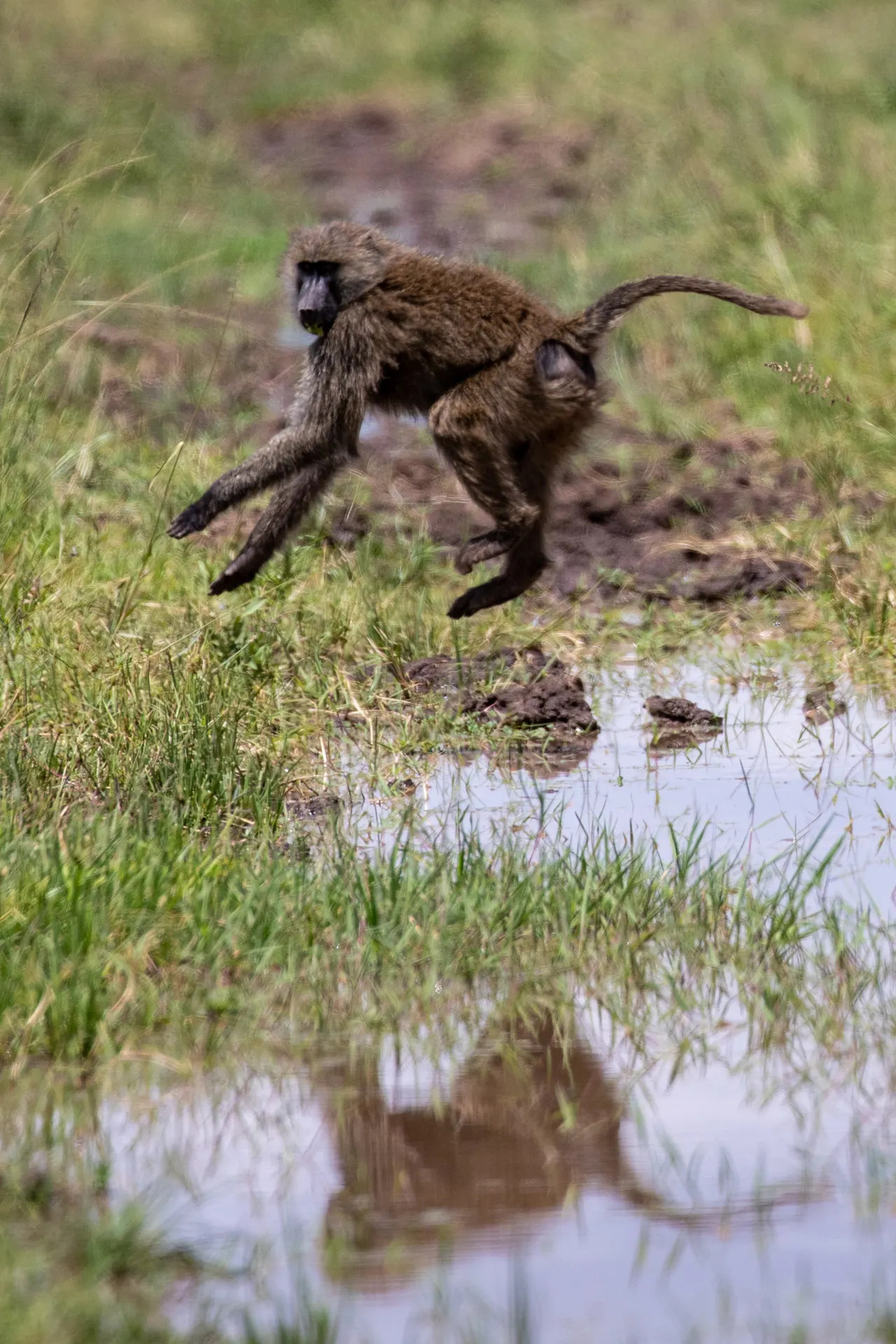
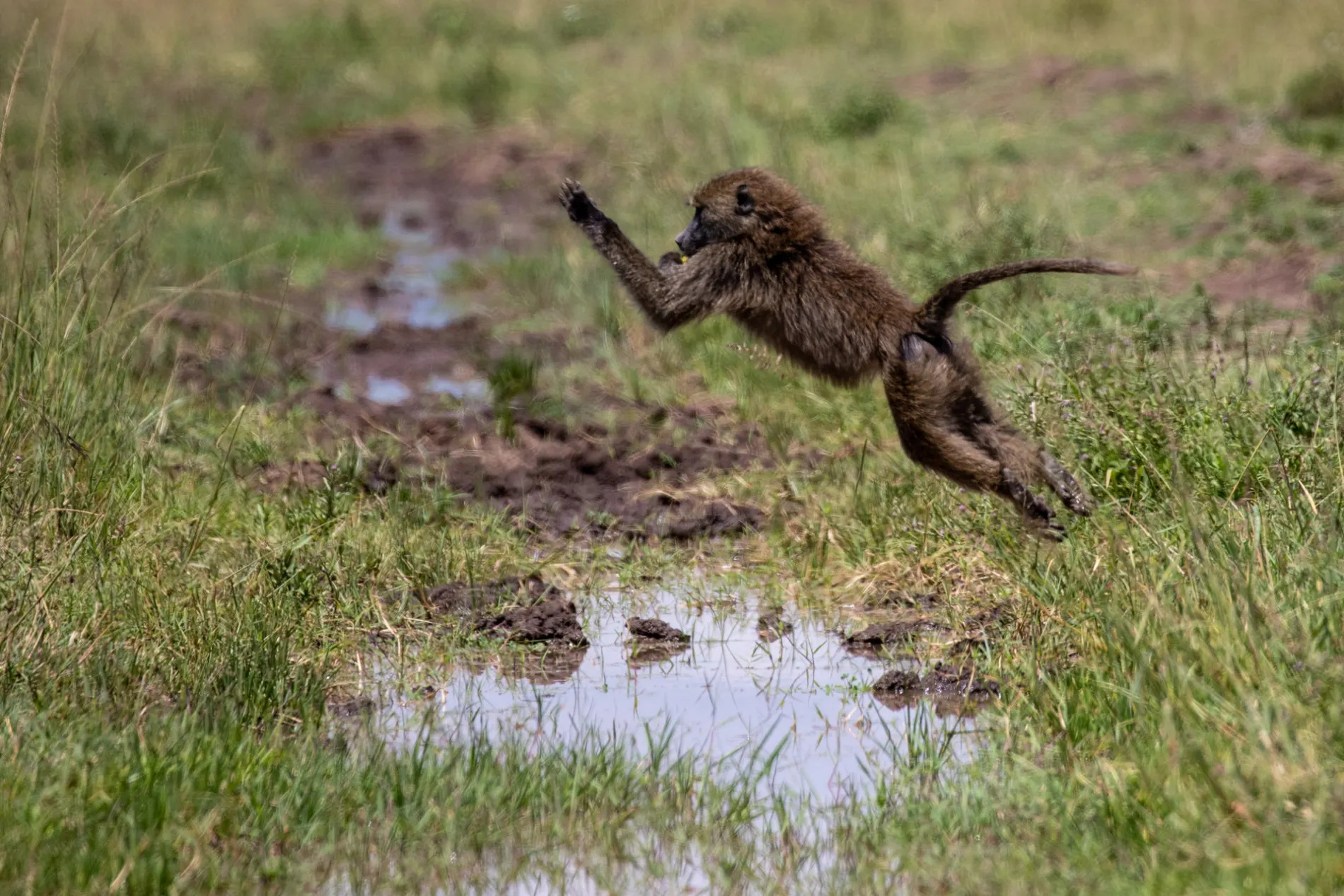 Photographs by Tyler Davis
Photographs by Tyler Davis
Driving past a drainage ditch full with the previous night’s rain, I realised a foraging troop of baboons would have to cross it and would likely not want to get their precious paws wet. I pulled down level with the ditch and waited; sure enough, the baboons started leaping across in quick succession. They were a bit far away, so the images aren’t pin-sharp, but I still enjoy the action in each shot. [f 5.6, 1/2000, ISO 200 f 5.6, 1/1250, ISO 200 f 5.6, 1/1250, ISO 200]
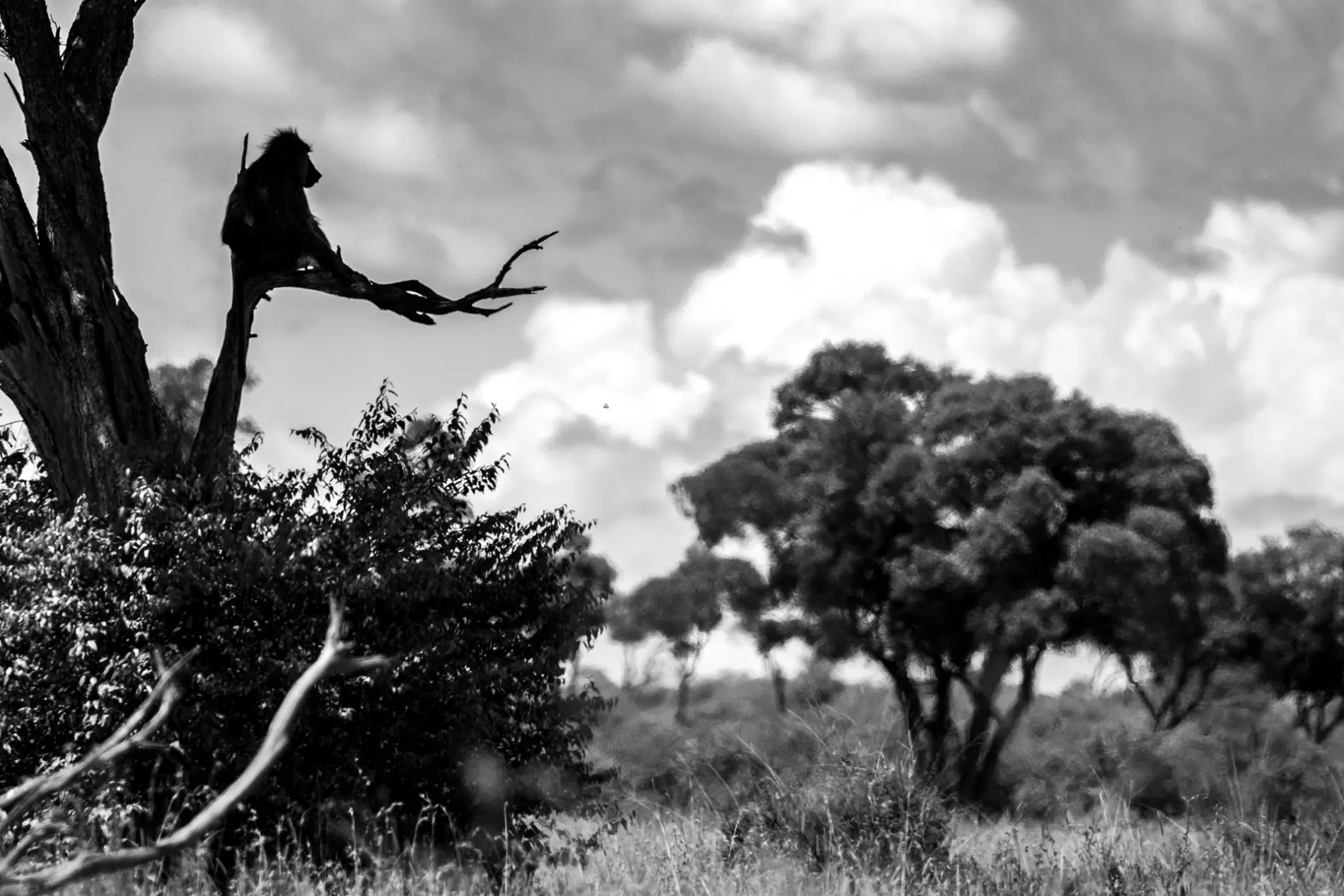 Photograph by Tyler Davis
Photograph by Tyler Davis
This sentinel baboon (from a different troop to those above) silhouetted by the mid-day sky caught my attention as I was driving home for lunch. I knew that the extreme contrast would make for a poor photo, but took the shot with a conversion to black and white in mind. [f 5.0, 1/2000, ISO 200]
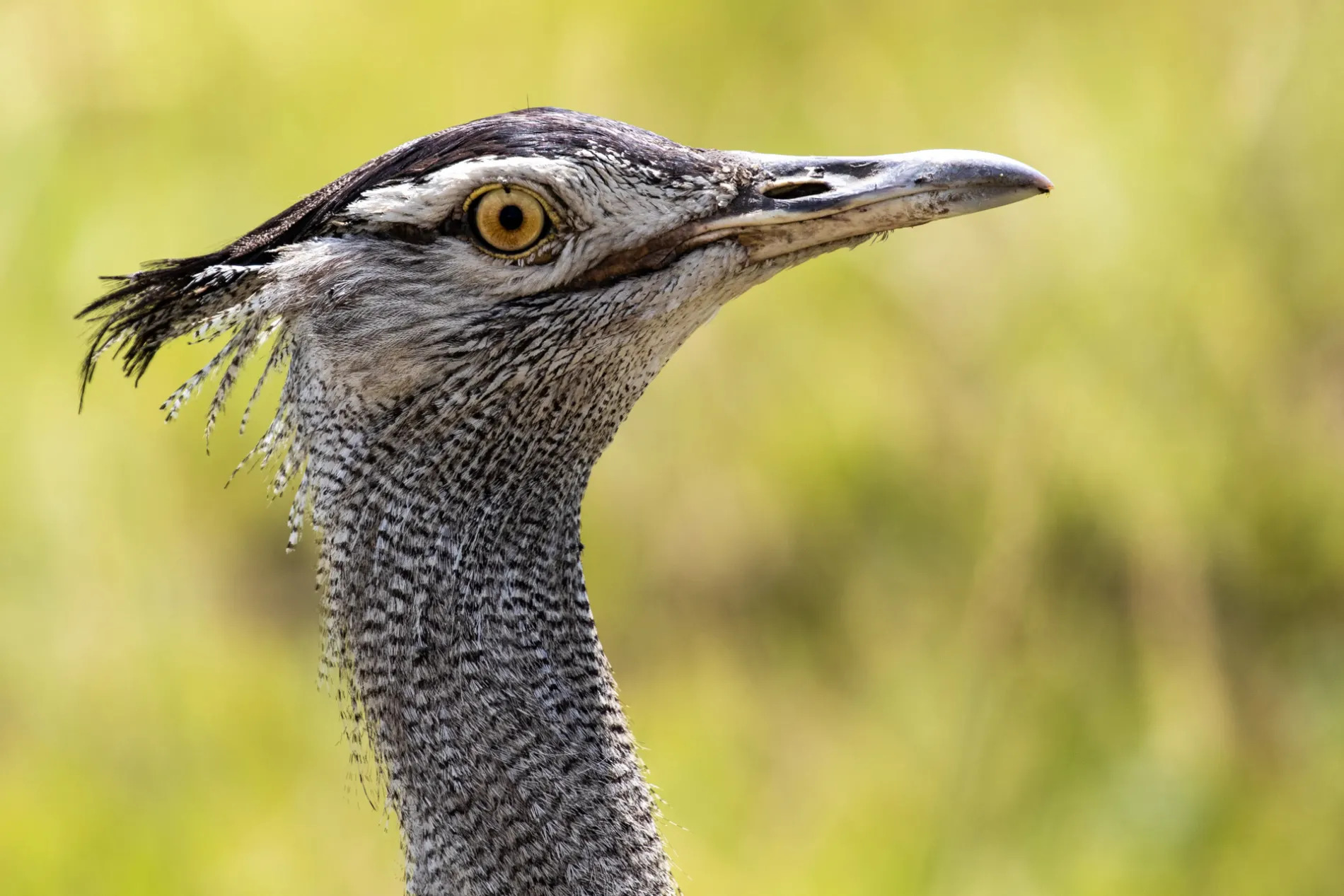 Photograph by Tyler Davis
Photograph by Tyler Davis
What’s a weekly blog without a few images of birds? Here’s a glamour shot of the world’s heaviest flying bird, a Kori Bustard. [f/5.6, 1/1000, ISO 200]
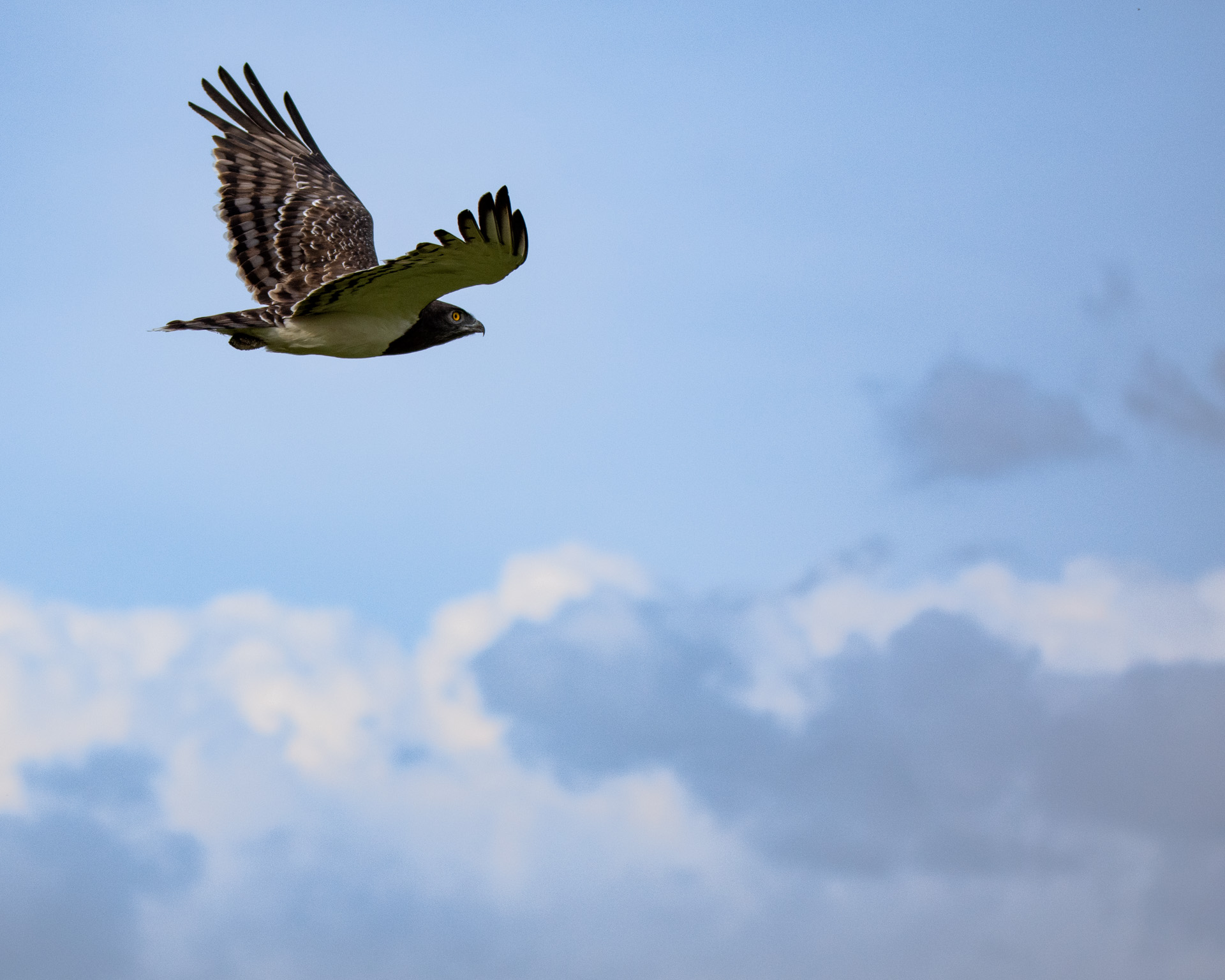 Photograph by Jeff Thige
Photograph by Jeff Thige
It’s always difficult to crisply capture a soaring raptor, but Jeff managed it here with this black-chested snake-eagle. [f/5.0, 1/3200, ISO 400]
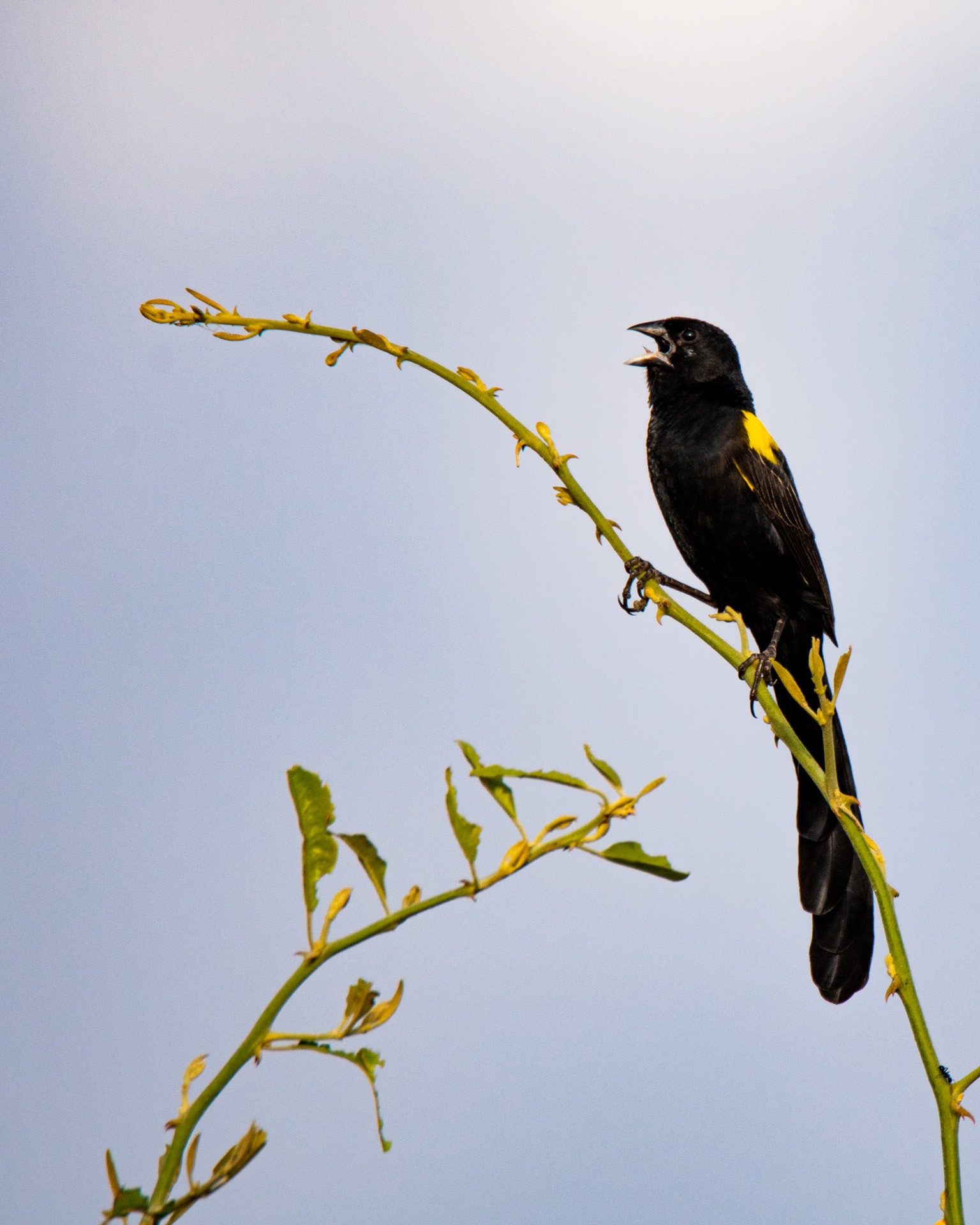 Photograph by Jeff Thige
Photograph by Jeff Thige
Widowbirds are notoriously difficult to capture well, often flying away just as the camera is raised for a shot. Here, Jeff not only managed capture a gorgeous male yellow-mantled widowbird, but also got it mid-song. [F/5.6, 1/1600, ISO 400]
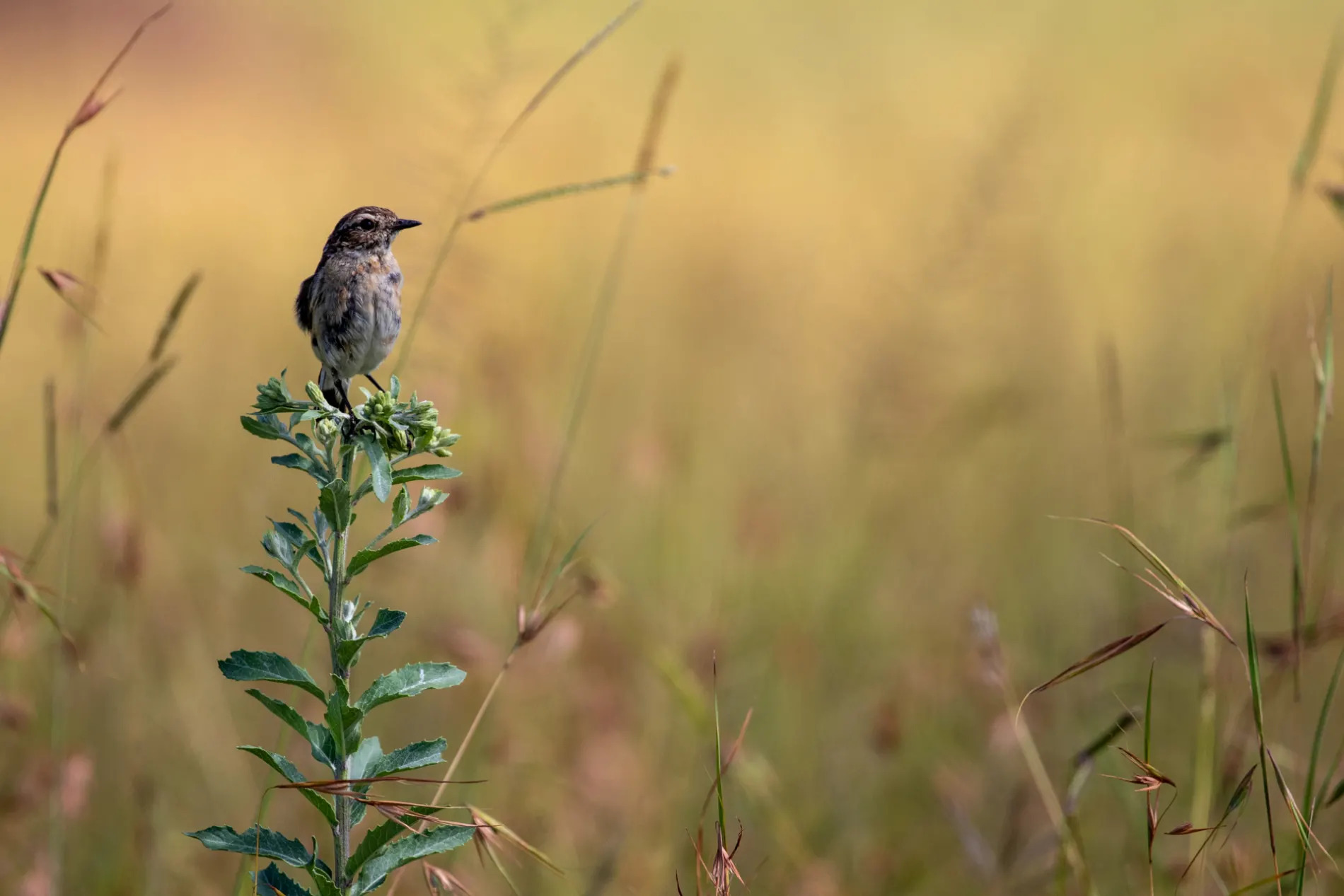 Photograph by Tyler Davis
Photograph by Tyler Davis
I like the grasses and pastel colours in this shallow-depth-of-field photo of a whinchat – a sparrow-sized bird that will begin migrating as far as northern Scandinavia, as well as parts of Asia, in just a few short weeks. [f/5.6, 1/1000, ISO 200]
THIS WEEK A YEAR AGO
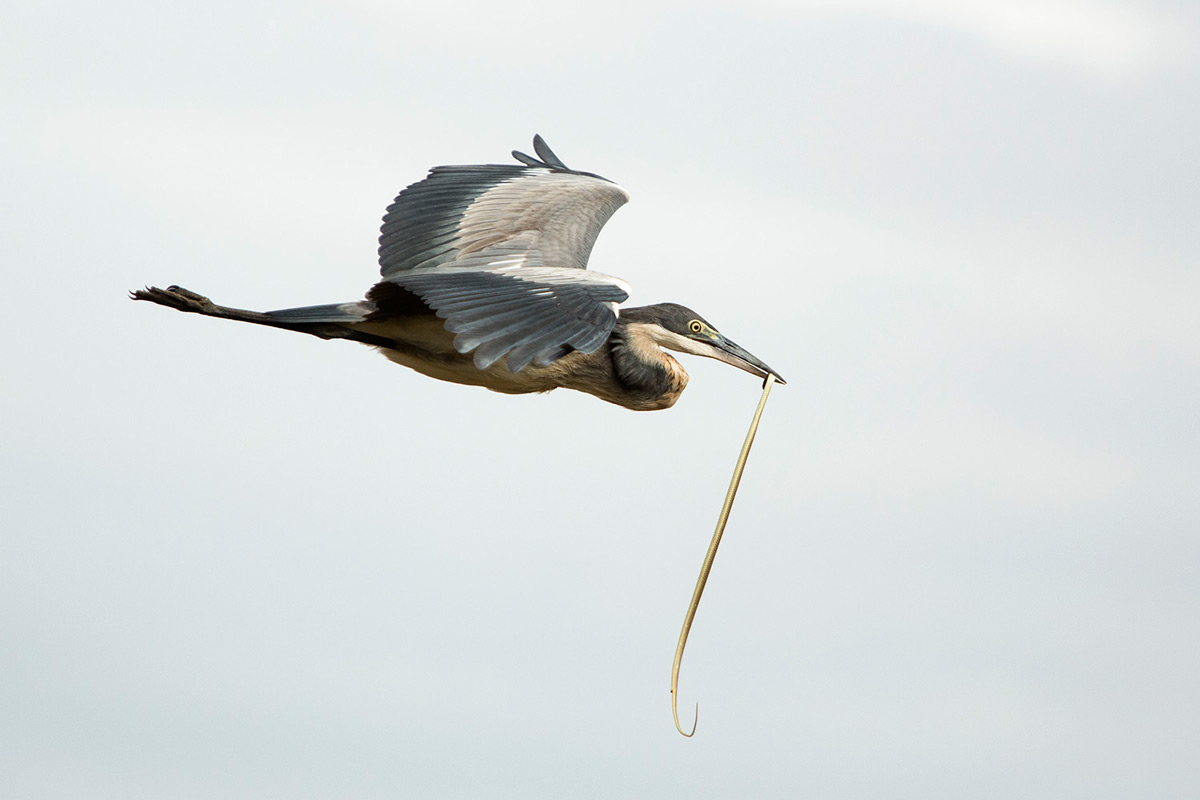 Photograph by Adam Bannister
Photograph by Adam Bannister
While on safari exactly a year ago, Adam noticed a black-headed heron fly by with something dangling from its beak. It landed nearby, giving Adam an opportunity to capture a rather unusual sequence involving the heron navigating how to consume its wriggling prey.
TAGGED WITH:


